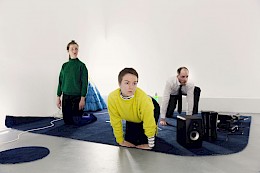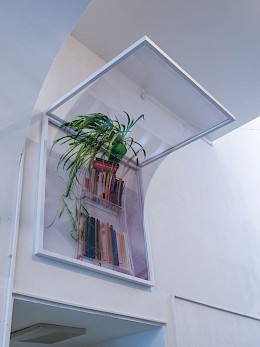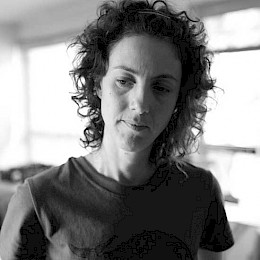1. What does the idea of a non-human world mean to you? Do you see it as an inspiring artistic proposition or as a real possibility for the near future?
The world is non-human, we are the last to arrive to the party - and we are definitely spoiling the fun.
2. The exhibition is based on a narrative that defines a specific context for the artists and visitors as well as for the additional education program. What implications do you think could come up by exhibiting your work in this setting? Do you think it could generate new readings of your work?
Each exhibition setting produces a new context and a new set of relationships between the work and other works. This in turn produces new narratives and readings, which is great.
3. What role does social, ecological and economical sustainability play in your artistic practice?
I try to make work that is sensitive to its social and ecological context. The relationships that start through the work often continue long after the work is finished. I work very slowly, allowing things to grow.
4. On which level do you think could art contribute to social and ecological changes?
This is a big question! I don't know if art should be expected to contribute to social and ecological changes. Activism and politics might be better at that. However, art being part of the representational regime we live in, can change the way we see the world and think about it.
5. During the last decade the liaison between art and science has been a topic frequently discussed. In this context art was often considered to be a successful tool for the production of alternative forms of knowledge. How do you evaluate this idea?
Both science and art produce forms of knowledge and have led to mutual innovation for a long time. Just think the printing press or the lens....


